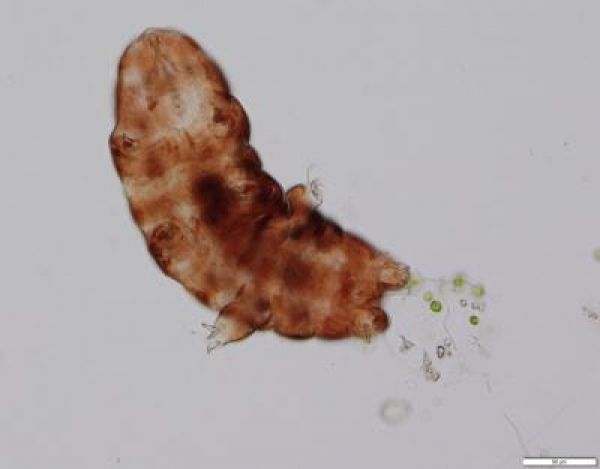Global warming, a major aspect of climate change, is already causing a wide range of negative impacts on many habitats of our planet. It is thus of the utmost importance to understand how rising temperatures may affect animal health and welfare. A research group from Department of Biology, University of Copenhagen has just shown that tardigrades are very vulnerable to long-term high temperature exposures. Animals, which in their desiccated state are best known for their extraordinary tolerance to extreme environments.
In a study published recently in Scientific Reports (an open access journal published by Nature Publishing Group), Ricardo Neves and Nadja Møbjerg and colleagues at Department of Biology, University of Copenhagen present results on the tolerance to high temperatures of a tardigrade species.
Tardigrades, commonly known as water bears or moss piglets, are microscopic invertebrates distributed worldwide in marine, freshwater and terrestrial microhabitats.
Ricardo Neves, Nadja Møbjerg and colleagues investigated the tolerance to high temperatures of Ramazzottius varieornatus, a tardigrade frequently found in transient freshwater habitats.
Read more at Faculty of Science - University of Copenhagen
Image: A research group from Department of Biology, University of Copenhagen has just shown that tardigrades are very vulnerable to long-term high temperature exposures. Animals, which in their desiccated state are best known for their extraordinary tolerance to extreme environments. (Credit: Ricardo Neves)


